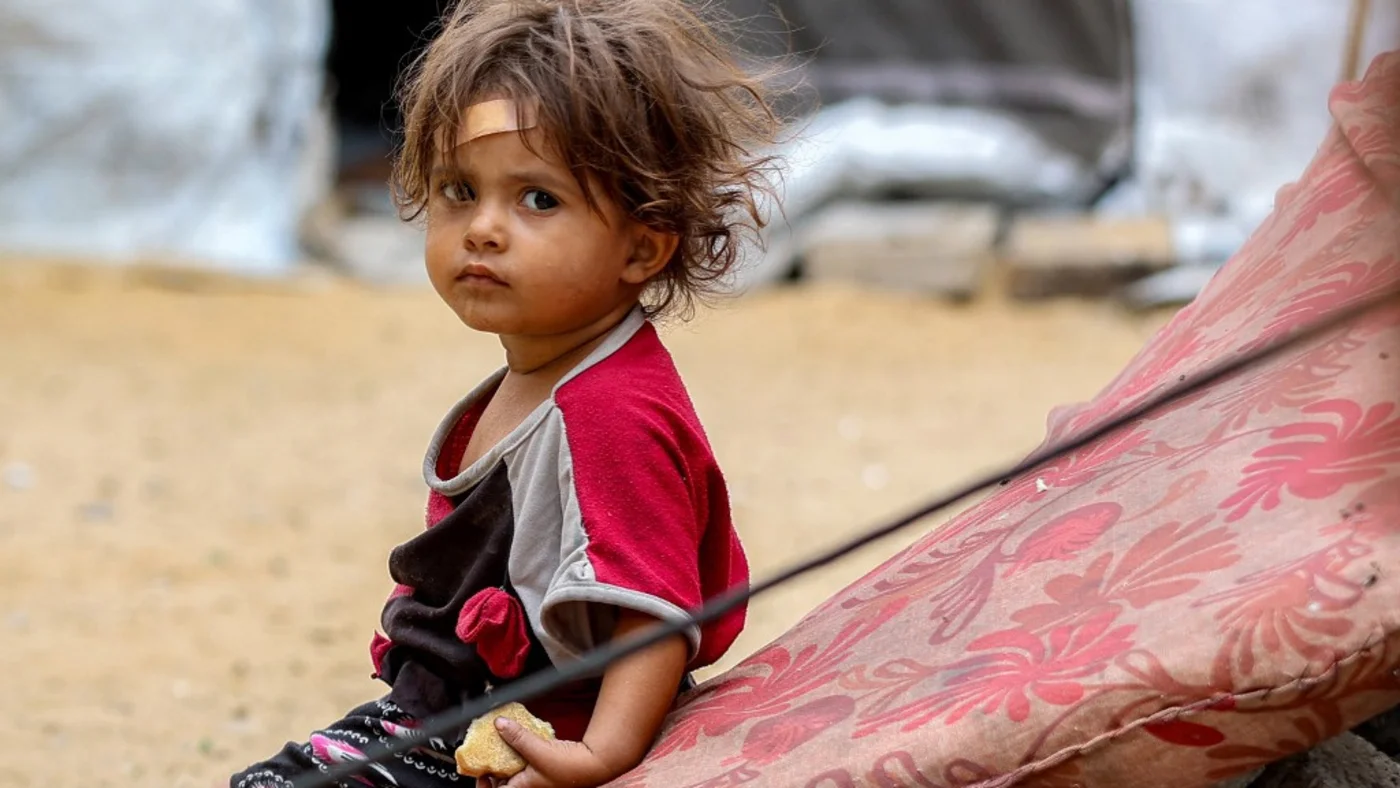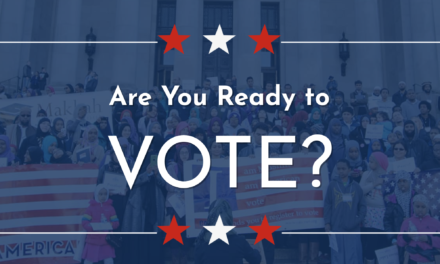A girl sits outside a tent in Khan Younis, Gaza, on 6 October 2025 (Omar al-Qattaa/AFP)
hen Haifa fell to the Zionists in April 1948, it was with the collusion of Britain’s commander in the city at the time, Major General Hugh Stockwell.
In response to the brutal assault on Haifa by the Haganah, the Jewish militia that later became the Israeli army – an attack that he allowed to happen – Stockwell advised the terrorised Arabs to accept the Haganah’s terms of surrender, or face hundreds more of them being killed.
That is essentially the same ultimatum dictated by the US, Britain’s modern equivalent in Palestine, to Hamas today.
US President Donald Trump’s 20-point “peace plan” for the future of Gaza can be distilled into one message for Hamas: take our terms – no amendments, no discussion – or face more death and destruction.
This gun-to-the head approach towards Palestinians is not new, and it perfectly illustrates a peculiar western mindset towards non-white people – one that persistently belittles and ignores their rights and aspirations.
This attitude has been at the heart of the West’s dealings with the Palestinian people from the 1917 Balfour Declaration up to the present US plan.
In 1917, Lord Arthur Balfour was not ashamed to declare that he had no intention of consulting the natives of Palestine about the future he was devising for their country. They were regarded as of little account to Britain’s colonial project.
Collusion in genocide
More than a century on, nothing has changed for western elites. On the contrary, their disdain and condescension towards Palestinians have increased. Nothing else can explain the West’s collusion and inaction during two years of Israel’s genocidal assault on Gaza. Imagine if the victims had been Ukrainians, or other Europeans, in place of Arabs.
It is not only western elites who hold these views. Many average people in western countries, despite all that has happened, still regard Israel as an acceptable state.
Familiarity with the biblical notion that Jews belong in the Holy Land, and sympathy for their suffering in the Holocaust, have given Israel legitimacy as a “Jewish state”. As a result, many simply “don’t get” how the conflict was spurred by Zionist settler-colonialism and Palestinian dispossession.
This does not make them anti-Arab racists, but it provides a permissive background to the prejudices of the elite.
Given this context, it is not surprising that two years on from the events of 7 October 2023 – and in the face of a global uprising in support of Palestine – it is possible for the West to devise a peace plan that absolves Israel of its crimes, delivers it a victory it could not otherwise achieve, and solidifies its own colonial hold on Palestine.
Many countries have welcomed the US plan, presumably because of its call for an instant ceasefire, prisoner exchange and entry of humanitarian aid, along with an end to the threat of ethnic cleansing.
But one should be under no illusion about its true purpose: Trump’s plan is designed to destroy the Palestinian resistance movement and colonise Gaza.
Why else was it drawn up without the input of Palestinians about their own future, while aiming to impose a foreign administration that robs Gaza’s people of agency and independence? Even more insultingly, the proposed “Board of Peace” that would take charge of Gaza is to be headed by Trump, the enabler of Israel’s genocidal crimes, without whom many thousands of Palestinians would still be alive today.
Adding insult to injury, the board would include former British Prime Minister Tony Blair, widely reviled by Palestinians for his crimes against Iraq and partiality towards Israel.
Vicious dilemma
The subtext of Trump’s peace plan is that Hamas is the cause of Gaza’s plight, and as such its freedom of action must be terminated. It must either accept the plan’s terms or “pay in hell”, to borrow Trump’s phrase.
Hamas must release all hostages, dead or alive, in its custody within the first 72 hours of the agreement’s acceptance by Israel. It would then have to discard its arms and accept having no role in the governance of Gaza.
In summary, the US plan aims to rehabilitate Israel, now widely considered a pariah state, while leaving it free to colonise the West Bank (of which there is no mention in the plan). It would give real-estate developers, like Trump’s son-in-law, license to exploit Gaza, and potentially deliver Trump what he so covets: a Nobel Peace Prize.
All of this would be achieved with international approval and the support of Arab and Islamic states, which will likely foot the bill for Gaza’s reconstruction.
What happens next is not known. Hamas faces a vicious dilemma: either accept Trump’s ultimatum – it has so far accepted certain conditions, but major obstacles remain – while running the risk of self-annihilation, or reject it and be held responsible for more death and destruction in Gaza. It is a defeat for Hamas either way.
Yet it is not the twists and turns that immediately lie ahead which should concern us most. Rather, it is western imperialism, and its concomitant denigration of “natives”, that brought us here – and so long as this mentality endures, the persecution of Palestinians, and all non-white peoples, will never end.
Even if the genocide in Gaza comes to an end, trouble spots will erupt elsewhere and be handled in the same destructive, supremacist manner.
Only when the racism that underlies much of the West’s behaviour is addressed and ended, can the world look to a future based on justice, as opposed to tyranny and brute force.
The views expressed in this article belong to the author and do not necessarily reflect the editorial policy of Middle East Eye.
By Ghada Karmi
Ghada Karmi is a former research fellow at the Institute of Arab and Islamic Studies, University of Exeter. She was born in Jerusalem and was forced to leave her home with her family as a result of Israel’s creation in 1948. The family moved to England, where she grew up and was educated. Karmi practised as a doctor for many years, working as a specialist in the health of migrants and refugees. From 1999 to 2001, Karmi was an associate fellow of the Royal Institute of International Affairs, where she led a major project on Israel-Palestinian reconciliation.














